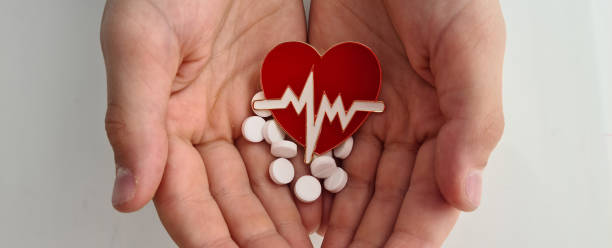Love and drug addiction are two powerful forces that can shape and define the course of a person’s life. While love is often considered a positive and life-affirming emotion, drug addiction is a destructive force that can lead to profound consequences. In this article, we will explore the intricate relationship between love and drug addiction, examining how they intersect, influence one another, and impact individuals caught in their grasp.
The Allure of Love
 (Photo from iStock)
(Photo from iStock)
Love, often described as a sublime and profound emotion, is a fundamental aspect of the human experience. It has the power to bring joy, fulfilment, and a sense of purpose to individuals. Whether it’s the love shared between romantic partners, the bond between family members, or the connections formed with friends, love plays a crucial role in shaping our emotional well-being.
The biochemical processes associated with love are complex and fascinating. When individuals experience love, their brains release neurotransmitters such as dopamine, oxytocin, and serotonin. These chemicals create a sense of euphoria, happiness, and emotional bonding. Love becomes a natural high, a positive reinforcement that encourages individuals to seek and maintain meaningful connections.
However, the same biochemical processes that make love so rewarding can also make individuals vulnerable to certain pitfalls. The intense emotions associated with love can lead some people to seek alternative ways to amplify those feelings or cope with the challenges that relationships inevitably bring. This vulnerability becomes particularly evident when love intersects with the powerful allure of drug addiction.
The Lure of Escapism: Drugs as a Substitute
For some individuals, the highs associated with love may not be enough to numb the pain or distract from the harsh realities of life. This vulnerability can make them susceptible to the allure of drug addiction as a means of escapism. Drugs, whether they are opioids, stimulants, or hallucinogens, provide an alternative route to altered states of consciousness.
People grappling with the complexities of love may turn to drugs to cope with heartbreak, betrayal, or the challenges of maintaining a relationship. The initial escape that drugs offer can be tempting, providing a temporary reprieve from emotional turmoil. However, this escape is often fleeting and comes at a significant cost.
The Destructive Spiral: Love, Drugs, and Co-Dependency
The intersection of love and drug addiction can give rise to co-dependent relationships, where both partners rely on each other to fulfill their emotional needs. In such cases, one partner may be struggling with drug addiction, while the other becomes entangled in a cycle of enabling, caretaking, or even substance abuse.
Love, with its ability to inspire selflessness and devotion, can lead individuals to sacrifice their own well-being for the sake of their addicted partners. Conversely, drug addiction can manipulate these emotions, fostering dependency and perpetuating a destructive cycle where both love and drugs become inseparable elements of a toxic relationship.
This co-dependency is particularly challenging to break, as the emotional bonds formed in the name of love become intertwined with the addictive behaviours. Breaking free from such relationships often requires not only addressing the addiction but also untangling the emotional bonds that have been forged over time.
The Impact on Mental Health
The intersection of love and drug addiction can have severe consequences on mental health. Individuals caught in this complex web often face heightened levels of stress, anxiety, and depression. The constant emotional turbulence of love combined with the physical and psychological toll of drug addiction can create a perfect storm of mental health challenges.
Moreover, the stigma surrounding both love-related issues and drug addiction can further isolate individuals. Making it difficult for them to seek help. The fear of judgment, rejection, or societal condemnation may prevent those in need from reaching out for support, exacerbating the mental health impact of their struggles.
Treatment and Recovery
Breaking the cycle of love and drug addiction requires a comprehensive and multidimensional approach. Recognizing the interconnected nature of these issues is the first step towards seeking help. Professional counselling, therapy, and support groups can provide individuals with the tools and resources needed to address both the emotional challenges of love and the destructive patterns of addiction.
In some cases, interventions may be necessary to encourage individuals to seek treatment for their addiction. This may involve staging an intervention with the help of trained professionals to express concerns, offer support, and motivate the individual to enter rehabilitation.
Recovery from love and drug addiction is an ongoing process that requires commitment. Perseverance, and a willingness to confront and address the underlying issues. It often involves not only breaking free from substance dependence. But, also revaluating and reshaping one’s approach to love and relationships.
The Role of Love in Recovery
While love can be a contributing factor to the challenges of addiction. It can also play a pivotal role in the recovery process. The support and understanding of loved ones can be a powerful motivator for individuals seeking to overcome addiction. Rebuilding broken relationships, mending trust, and cultivating a healthy support system are integral aspects of the recovery journey.
In some cases, individuals may find strength in the love they have for themselves.
Prevention and Education
 (Photo from iStock)
(Photo from iStock)
Preventing the intersection of love and drug addiction begins with education and awareness. Promoting a better understanding of the risks associated with substance abuse. And the potential impact on relationships can empower individuals to make informed choices.
Schools, communities, and families can play a crucial role in fostering open and honest conversations about love. Relationships, and the dangers of drug addiction.
Conclusion
The intersection of love and drug addiction creates a complex. And challenging landscape for individuals seeking to navigate the intricate terrain of relationships and substance abuse. While love has the power to inspire and uplift, it can also become entangled with the destructive force of addiction. Understanding the interplay between these two powerful forces is crucial for addressing the root causes of co-dependency and fostering recovery.




